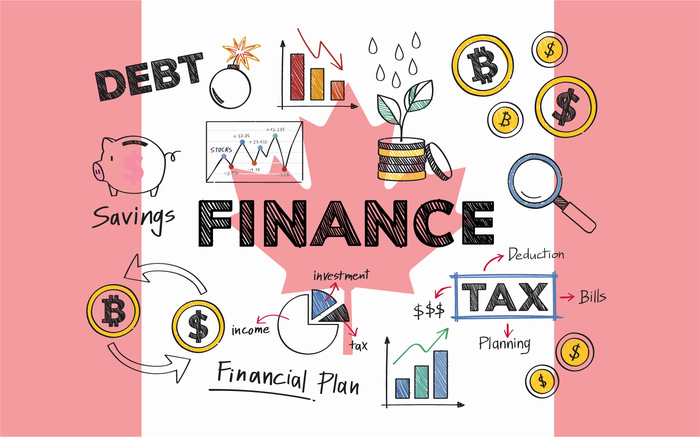Managing student loans can be overwhelming, but with the right strategies, it’s possible to take control of your debt and achieve financial stability. This guide provides practical advice on managing student loans effectively, from understanding your loans to exploring repayment and forgiveness options.
1. Understanding Your Student Loans
Types of Student Loans
Student loans are primarily divided into federal and private loans. Federal loans are funded by the government and offer flexible repayment options and potential forgiveness programs. Private loans, on the other hand, are provided by private lenders and typically have higher interest rates and less flexible terms.
Interest Rates and Terms
Understanding the interest rates and terms of your student loans is crucial. Federal loans usually have fixed interest rates set by Congress, while private loans can have fixed or variable rates. Knowing the specifics of your loan can help you plan your repayment strategy more effectively.
2. Creating a Repayment Plan
Assessing Your Financial Situation
The first step in managing student loans is to assess your financial situation. Calculate your total debt, monthly income, and expenses. This will give you a clear picture of your financial health and help you make informed decisions.
Choosing the Right Repayment Plan
Selecting the right repayment plan is essential. Federal loans offer several options, including Standard, Graduated, and Income-Driven Repayment (IDR) plans. Each plan has its own benefits and drawbacks, so it’s important to choose one that fits your financial situation.
Federal Repayment Plans
- Standard Repayment Plan: Fixed payments over 10 years.
- Graduated Repayment Plan: Payments start low and increase every two years.
- Income-Driven Repayment Plans: Payments are based on your income and family size.
Private Repayment Options
Private lenders may offer various repayment plans, but they are generally less flexible than federal options. It’s crucial to contact your lender to discuss available options if you’re struggling to make payments.
3. Budgeting and Financial Planning
Setting Up a Budget
Creating a budget is vital for managing your student loans. List all your income sources and expenses, including loan payments. This will help you identify areas where you can cut back and allocate more money towards your debt.
Cutting Unnecessary Expenses
Review your spending habits and cut unnecessary expenses. This might include dining out less, canceling unused subscriptions, or shopping smarter. Every dollar saved can be put towards paying off your loans faster.
Building an Emergency Fund
Having an emergency fund can prevent you from missing loan payments if unexpected expenses arise. Aim to save at least three to six months’ worth of living expenses in a separate, easily accessible account.
4. Exploring Loan Forgiveness Programs
Public Service Loan Forgiveness (PSLF)
PSLF offers forgiveness for federal loans after 10 years of qualifying payments while working full-time for a qualifying employer, such as a government or non-profit organization.
Teacher Loan Forgiveness
Teachers working in low-income schools may qualify for loan forgiveness of up to $17,500 after five consecutive years of service.
Income-Driven Repayment Forgiveness
IDR plans offer loan forgiveness after 20-25 years of qualifying payments, depending on the specific plan.
5. Refinancing and Consolidation
Pros and Cons of Refinancing
Refinancing can lower your interest rate and monthly payments by taking out a new loan to pay off your existing loans. However, it’s important to consider the loss of federal loan benefits, such as income-driven repayment and forgiveness programs.
How to Refinance Your Student Loans
To refinance, shop around for lenders offering the best rates and terms. Compare offers and choose a lender that meets your needs. Complete the application process and use the new loan to pay off your existing loans.
Federal Loan Consolidation
Consolidation combines multiple federal loans into a single loan with one monthly payment. This can simplify repayment but may extend your repayment period and increase the total interest paid.
6. Making Extra Payments
Benefits of Extra Payments
Making extra payments can significantly reduce the amount of interest you pay over the life of the loan and help you become debt-free faster.
Strategies for Making Extra Payments
- Round Up Payments: Round up your monthly payment to the nearest hundred.
- Biweekly Payments: Make biweekly instead of monthly payments to reduce interest accrual.
- Allocate Windfalls: Use bonuses, tax refunds, or other windfalls to make additional payments.
7. Seeking Professional Advice
Financial Advisors Specializing in Student Loans
Consider consulting a financial advisor who specializes in student loans. They can help you create a personalized repayment strategy and navigate complex options.
Non-Profit Credit Counseling Services
Non-profit credit counseling agencies offer free or low-cost services to help you manage your debt. They can provide budgeting assistance and help you explore repayment and forgiveness options.
8. Staying Informed and Proactive
Keeping Up with Policy Changes
Stay informed about changes in student loan policies and programs. Subscribe to newsletters or follow reputable sources to keep up with the latest news and updates.
Monitoring Your Loan Status
Regularly check your loan status through your loan servicer’s website. Monitoring your loans can help you catch any issues early and ensure your payments are being applied correctly.
FAQs
What is the best way to manage student loans?
The best way to manage student loans is to understand your loans, create a realistic repayment plan, budget effectively, explore forgiveness programs, and stay proactive in monitoring and adjusting your strategy.
Can I negotiate my student loan interest rate?
While you can’t negotiate federal loan interest rates, refinancing with a private lender might allow you to secure a lower rate based on your creditworthiness.
What happens if I can’t make my loan payments?
If you can’t make your payments, contact your loan servicer immediately to discuss options such as deferment, forbearance, or switching to an income-driven repayment plan.
Are there any tax benefits for paying student loans?
Yes, you may be eligible for a student loan interest deduction on your federal taxes, which can reduce your taxable income by up to $2,500.
How does loan consolidation affect my credit score?
Consolidation can affect your credit score, but generally, the impact is minimal. It might cause a temporary dip in your score due to a hard inquiry but can improve your score over time by simplifying repayment.
Is it worth refinancing my student loans?
Refinancing can be worth it if you can secure a lower interest rate and save money over the life of the loan. However, weigh the benefits against the potential loss of federal loan protections.




